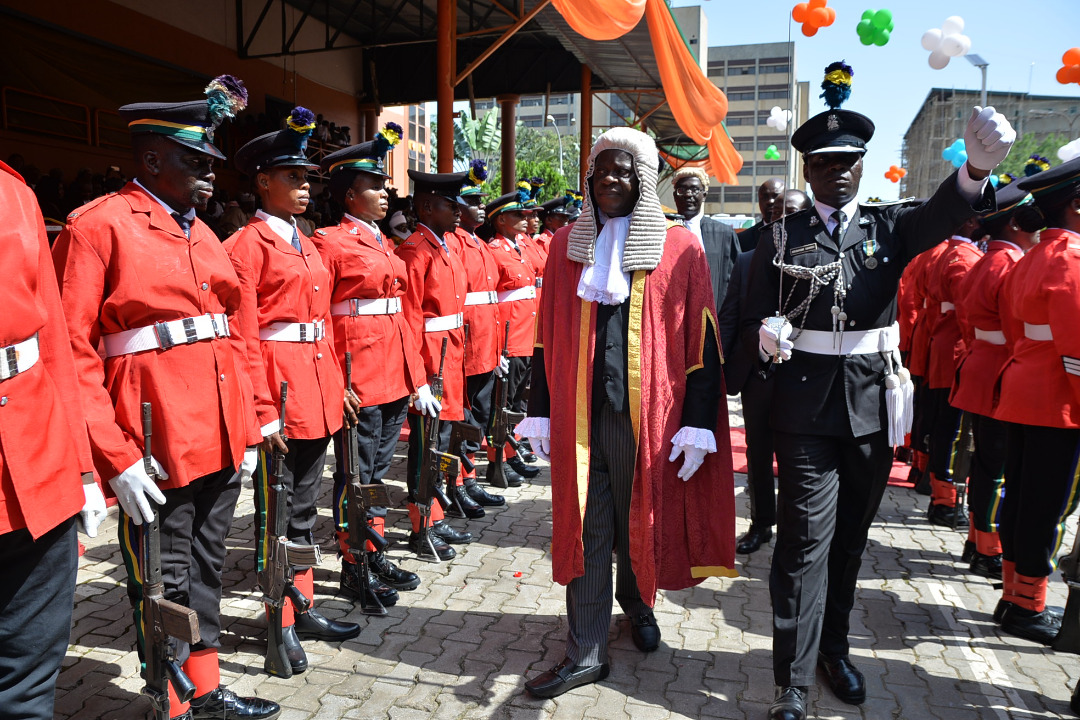By Lillian Okenwa
The war against gender-based violence in Nigeria gained some successes with the signing of a new practice direction on the Violence Against Persons (Prohibitions) VAPP Act 2015 and Trial of Sexual and Gender-Based Violence cases by the Chief Judge of the High Court of the Federal Capital Territory (FCT), Justice Husseini Baba Yusuf.

The Chief Judge signed the documents at a ceremony to mark the commencement of the 2022/23 legal year of the court.
Baba Yusuf in addition made known that he has signed the new District Court Rules, while a prepared draft of the District/Magistrate Courts Act, which he described as “first of its kind in the FCT”, had been sent to the National Assembly for legislative approval.
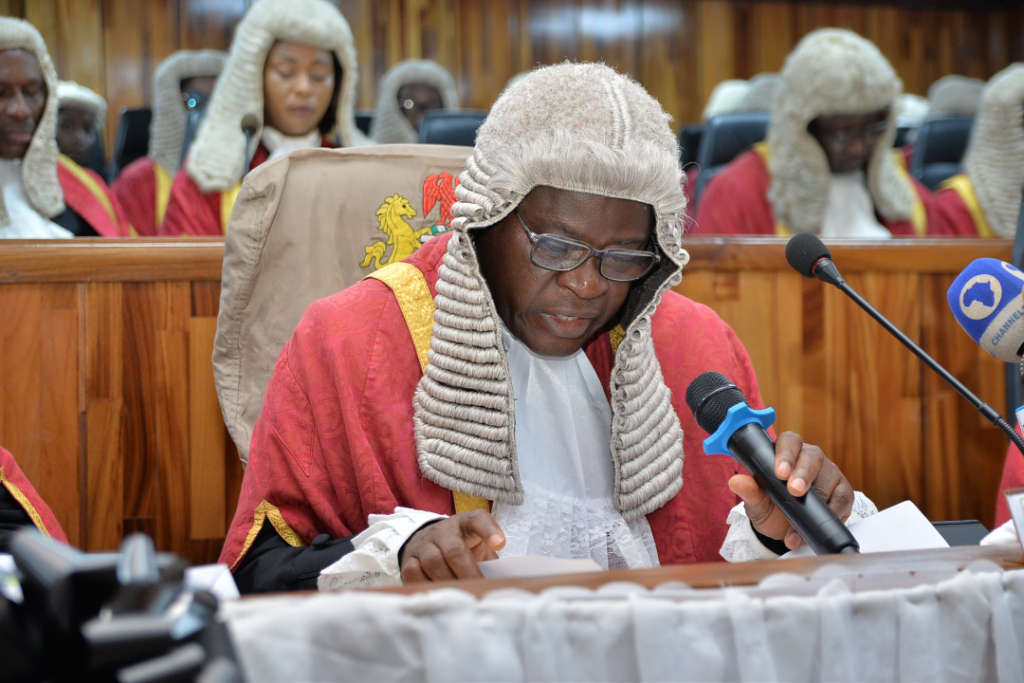
The new practice directive and guidelines on the trial of sexual and gender-based under the Violence Against Persons (Prohibition) Act, 20015 according to Justice Yusuf are a set of carefully thought out practice directives to enable and enhance the workability of the VAPP Act and other related matters.
Hon. Justice Yusuf also disclosed that there has been an increasing number of cases filed at the court, as a result of the growing population in the city in recent times.

Again he revealed that as part of efforts at promoting access to justice and speedy disposal of inexpensive, simple and small liquidated claims, the Court, in collaboration with the Presidential Enabling Business Environment Council (PEBEC), the FCT has constituted a Steering Committee, led by Hon. Justice M. A. Anenih, to facilitate the establishment of the Small Claims Court in the Magistracy System.
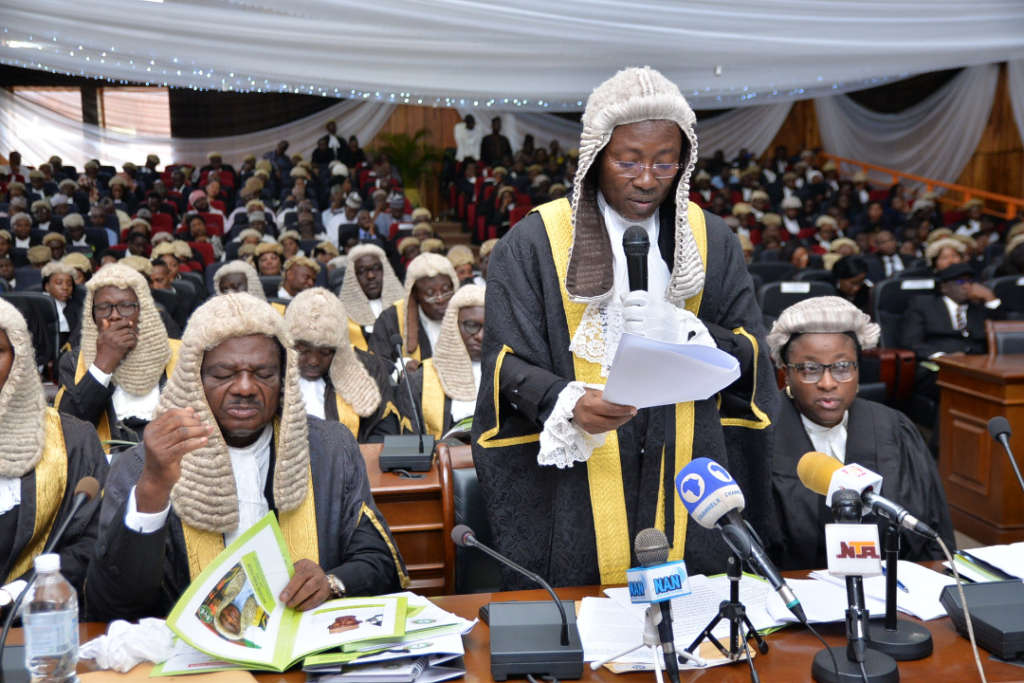
“I am delighted to let you know that the Committee had since concluded its assignment and the Small Claims Court, to be manned by fifteen (15) designated Magistrates, shall take off this Legal Year,” he said.
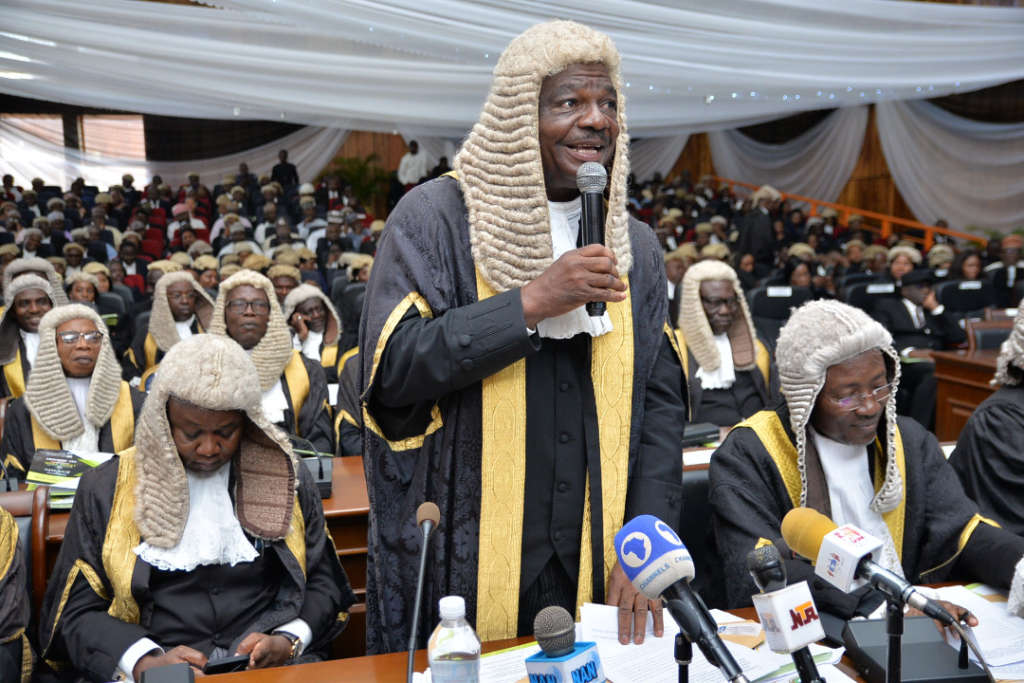
On his part, the Attorney General of the Federation and Minister of Justice, Abubakar Malami, SAN who was represented by a Director of Civil Litigation, Maimuna Lahmi Shehu pledged the federal government’s commitment to the sector towards promoting the rule of law in the country.
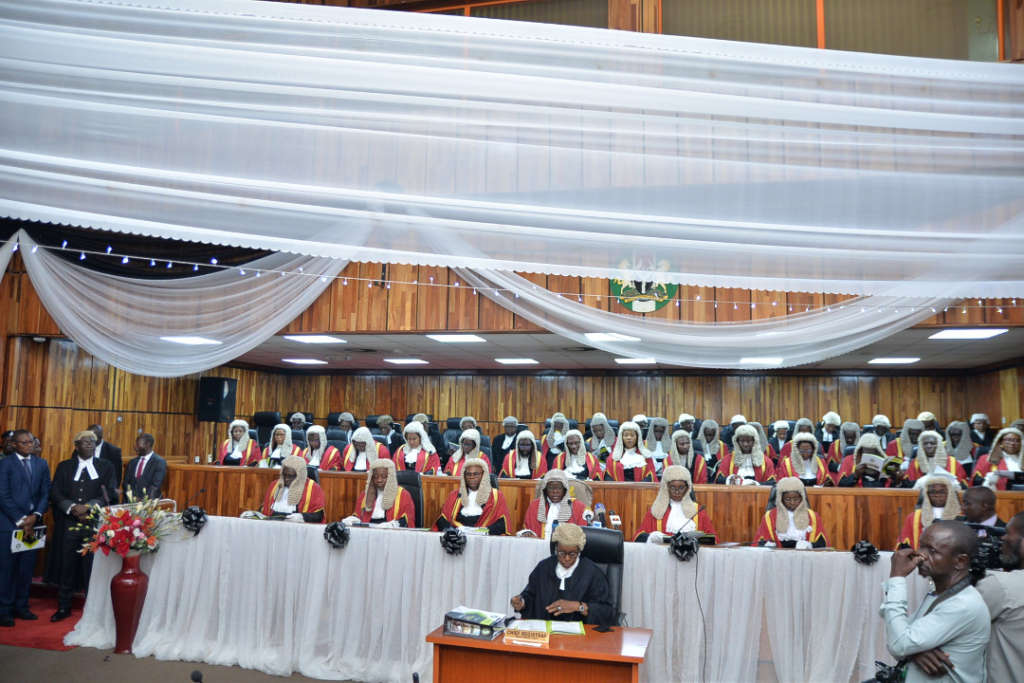
Present at the event was the President of the Nigerian Bar Association (NBA), Yakubu Maikyau, SAN who saluted the relationship between the bench and the bar while commending the court for reducing delay in litigation and for making records of proceedings available upon judgment.
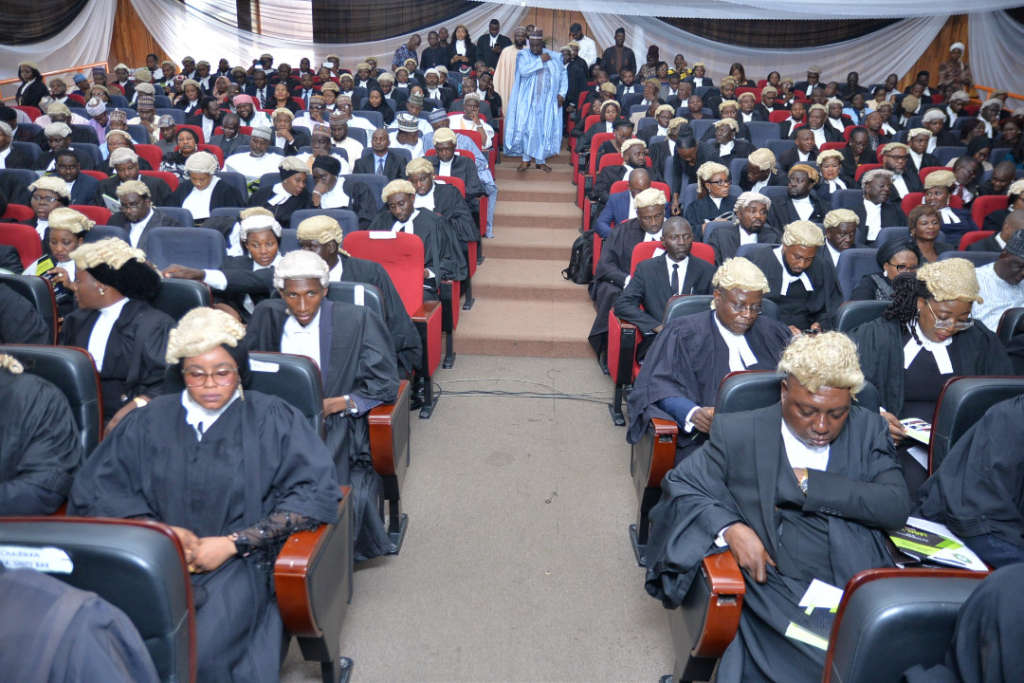
Likewise, the Body of Senior Advocates of Nigeria (BOSAN) which spoke through its President, Asiwaju Adegboyega Awomolo tasked judiciary stakeholders to look into the growing trend in the delay of cases filed while also restating the need for improved welfare for judicial officers in the country.
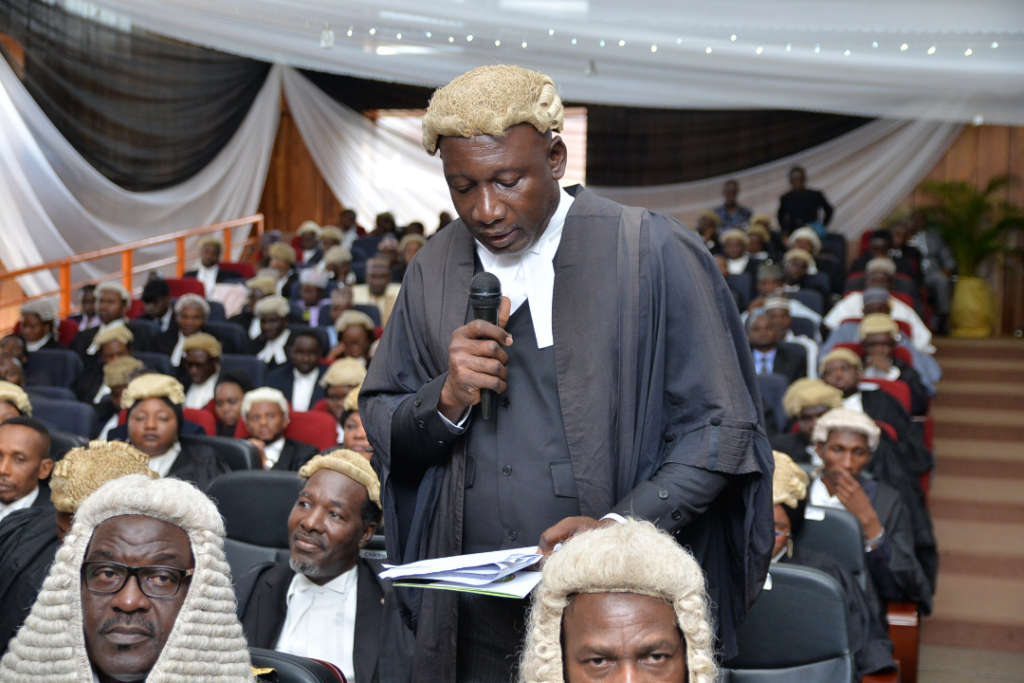
Chairman of the Unity Bar, NBA Abuja branch, Afam O. Okeke commended the FCT judiciary and also called for some reforms.
“My Lords, Communication about Court sittings is still a challenge. Though some courts have commendably set up WhatsApp Groups as mentioned earlier, where daily cause list is posted and counsel are pre-informed if the Court will not sit. However, not all Courts do this, and sometimes counsel travel long distances to some of the far-flung courts only to hear that the court will not sit. To attain functional justice delivery, communication should be at the fore.
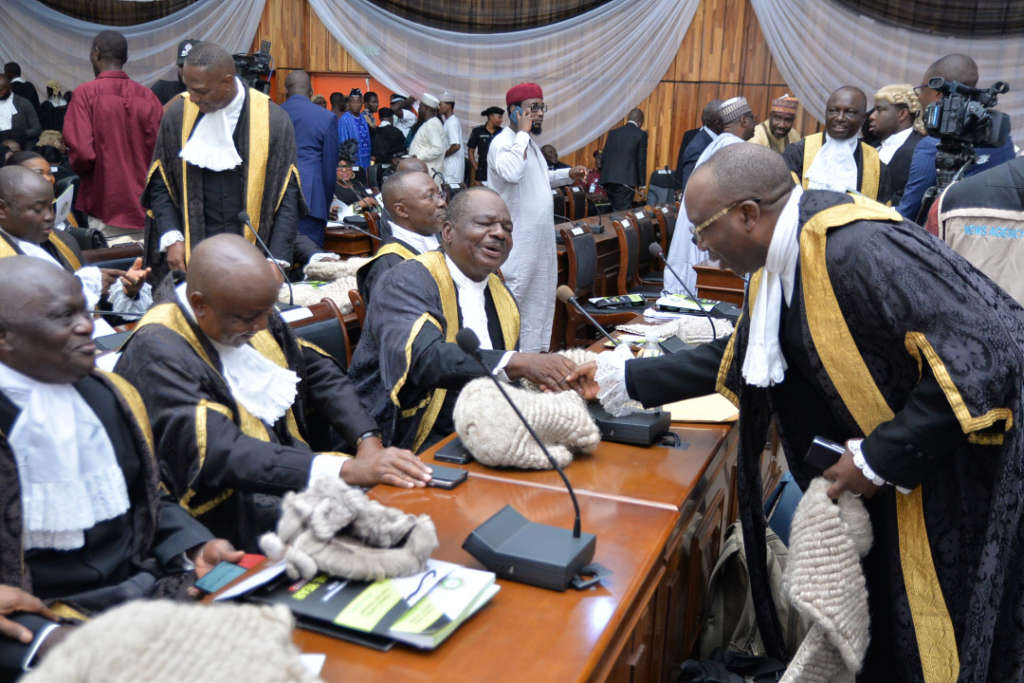
“Mobilizing bailiffs for service and processing other administrative applications with the Court support staff such as CTC and enrolled orders has become increasingly difficult as extortionate fees are charged. In fact, some Courts make us believe that they rely on commercial business centres to produce their documents. We have reports of lack of clerical services for some Courts especially Magistrate Courts, who are left to use commercial business centres leading to delays in processing CTC’s and enrolled orders. This is not only shameful but also an affront to the Judiciary.
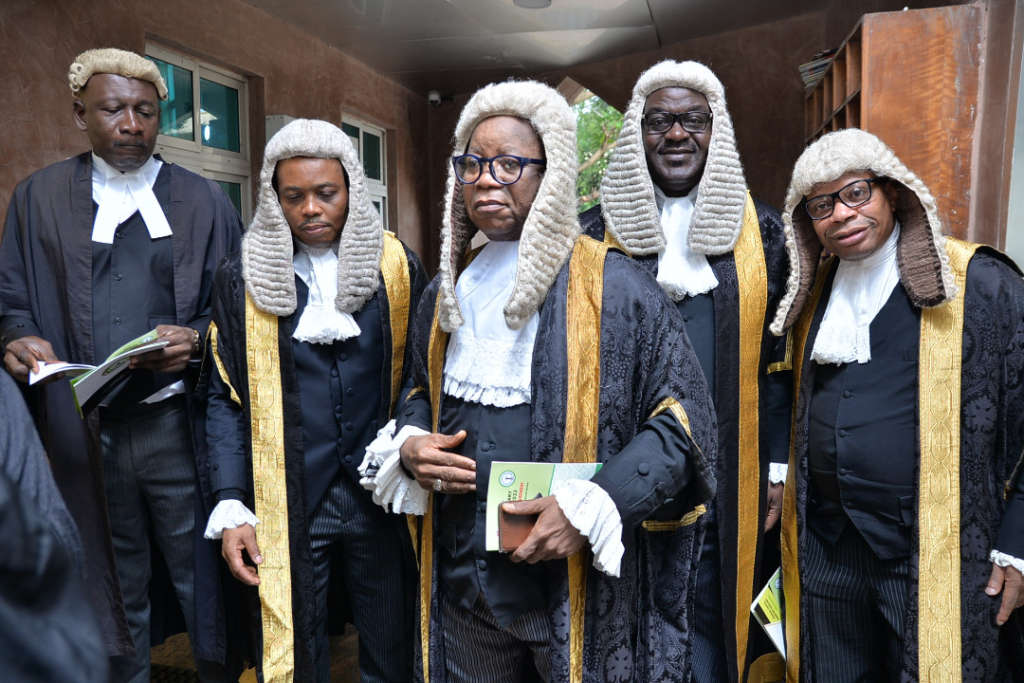
“The Court stamp and seal, though a wonderful initiative to checkmate the abuse and forgery of court processes might need to be reconsidered in certain situations. The insistence that routine letters including simple administrative applications like adjournment letters or applications for CTC must carry the stamp adds to bureaucracy and costs. Since the stamp is to assure third parties and the public of the authenticity of processes issued from the court, perhaps it is not necessary where Counsel writes to the court. The authenticity of a letter written by Counsel should be by affixing his own NBA stamp, not court stamp and seal…”

